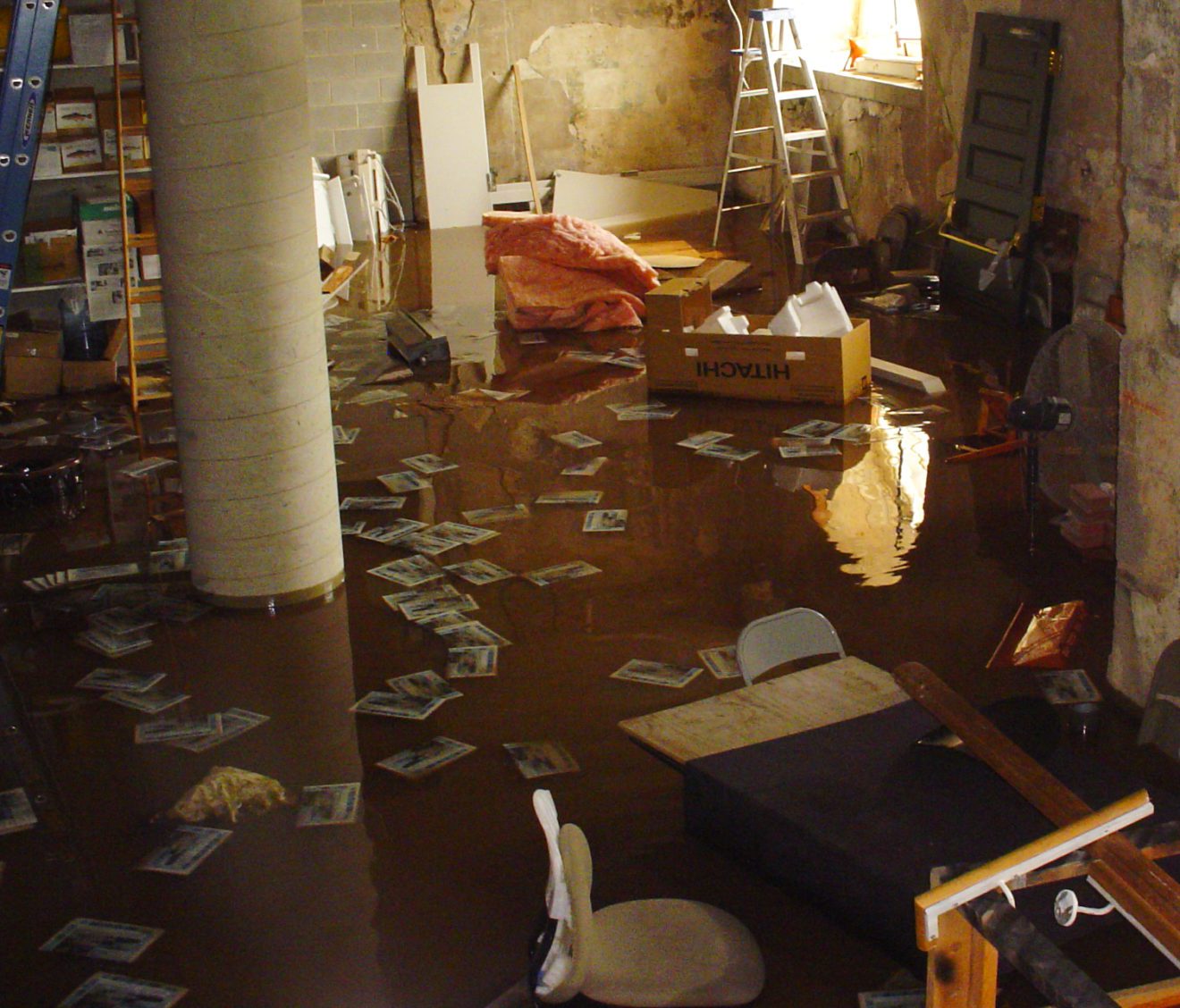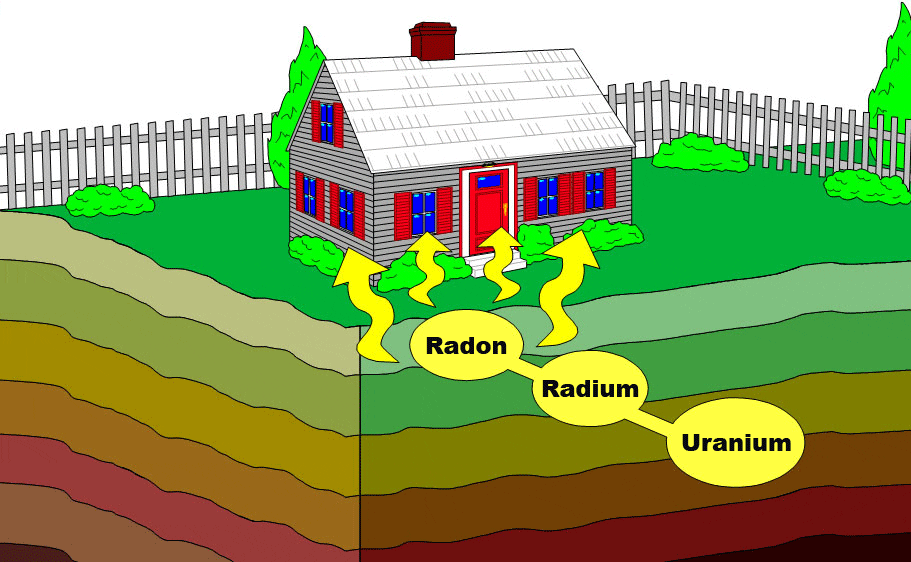
You remembered to grab your rain boots and umbrella when the forecast called for torrential rain, but unfortunately your home didn’t fare so well. Now what? One of the most damaging and devastating things a homeowner can experience is a flood. However, taking care of the problem quickly and effectively will help you reduce the amount of potential damage and will make your clean-up and repair process easier. Read on to learn about 7 important steps you should take if your basement ever floods.
1) Turn Off All Electrical Sources
If you’re able to access your breaker panel without walking through water, then cut power to the affected area before taking any further steps. Never enter a flooded area while the power is still on if you think there is any chance the flood water has reached any electrical outlets or wires. When in doubt, call a pro.
2) Put on Protective Gear
When making contact with flood water, it’s important to remember that you’ll also be dealing with whatever the water has been in contact with, which could include outside debris as well as sewage. You should wear protective clothing such as rubber boots and waterproof gloves when you enter the flooded area to avoid contaminants.
3) Remove Remaining Water & Disinfect All Surfaces
How you remove remaining water will vary depending on the degree of flooding you have experienced. If the amount of remaining flood water is significant, you may need to call a pro to assist. Get them there as quickly as possible. If you think you can tackle the water removal yourself then consider using a combination of buckets, a wet-vac, push brooms, mops and towels. Work to get the water out as quickly as possible. Pull up any carpet and separate the carpet and pad to dry out if you think it is salvageable (when in doubt, toss it). If the water is high enough to soak the baseboards and or drywall then be prepared to either cut that out (well above the water line) or have it removed by a professional. Toss any personal items that are not salvageable.
Once the water is removed, disinfect any areas or objects the flood water touched.
4) Document Any Damages
Once all water has been completely removed, document the extent of the water damages so that your insurance company or landlord can properly assess what needs to be repaired and what is covered by insurance. It’s important to be thorough and document everything extensively, as that will help you and your insurance company best determine what is and isn’t covered by your insurance plan. Take time to document wet wall boards, damaged flooring, waterlines on walls, rugs/carpets, furniture, and anything else that has been affected by the flood water. If your HVAC or hot water heater sustained damage, then be sure to have those assessed independently as well.
5) Contact Your Insurance Company/Landlord
For homeowners, you’ll need to contact your insurance company quickly in order to determine what is and isn’t covered by your insurance plan (renters – talk to your landlord so that they can take the appropriate next steps). Oftentimes your insurance company will send an adjuster to look at and assess the damages to determine if it is a covered loss. The sooner you call the insurance company, the sooner they will pay out for approved repairs. The photographs and videos you documented in the previous step will come in handy here!
6) Dry Out Your Home, Clean, & Mitigate Mold
Once you’ve successfully removed all of the remaining standing water from your home and documented the damages, you’ll need to quickly work to dry out everything that is still wet or damp. A combination of portable fans and dehumidifiers are the easiest way to dry out your basement, as they remove excess moisture from the air. Also run your HVAC 24/7 in full cooling to assist with dehumidification.
As you continue to dry out the affected areas, you need to simultaneously begin your cleanup process. Make a list of what you deem to be salvageable and what needs to be thrown away. As you work, continue to disinfect any areas or objects that came into contact with the flood water.
Remove waterlogged flooring, drywall, or insulation as these are most likely to harbor mold that can spread throughout your home.
Speaking of mold, it’s an enormous secondary cause of damage to consider. While tossing waterlogged furniture or damaged floors can be hard to stomach, mold is a silent problem that can cause long term health effects if not prevented and/or treated after a flood. You’ll need to move quickly, as mold, mildew, and fungi can begin to grow within 48 hours after water damage occurs. If there is any doubt that your drywall or carpet might not be salvageable then toss it and start fresh. If you are concerned about mold growth then consider having the space tested for mold by a mold specialist.
7) Lessen the Chances that Your Basement Floods Again
After your finish cleaning up, take steps to prevent future flooding. If your sump-pump malfunctioned or doesn’t have a battery back-up then get it repaired and add a battery back-up immediately. If your basement flood somewhat regularly, consider having a french-drain and sump pump system installed. Check all of your exterior drains, gutters and downspouts to be sure all the water is flowing away from your house. Check any nearby municipal drains to sure they are working correctly and report them to your city/county if they appear clogged or not functioning correctly. Ensure that the grading around your house slopes away from the house and that there is no pooling or ponding water anywhere near your foundation walls.
If you need any additional help our guidance then please give us a call. We’re here to help in any way we can.
The Stokes Group is a team of dedicated professionals who have passion for the real estate business and will advocate for our clients with the utmost honesty, integrity, and confidentiality. We believe in building solid relationships with our clients and that starts by getting to know who we are. Follow us on Facebook and Instagram.

The Stokes Group is a team of dedicated professionals who have passion for the real estate business and will advocate for our clients with the utmost honesty, integrity, and confidentiality.



